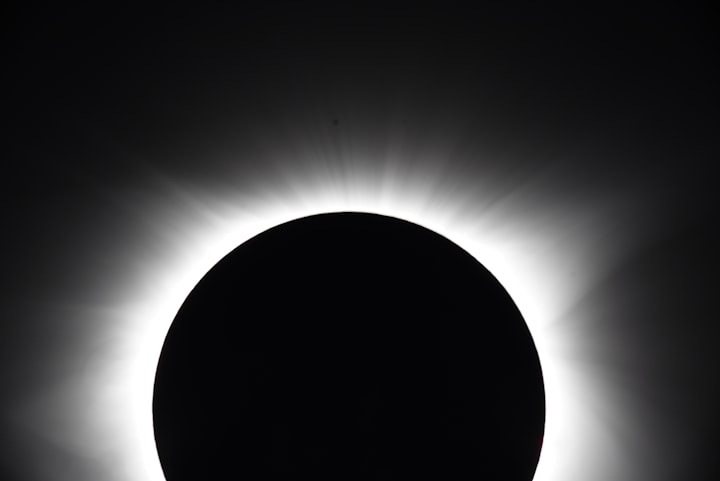
PEOPLE 1: On the bottom of our planet lies the frigid land of Antarctica, the coldest and most inhospitable continent in the world. Stretching over 5 million square miles, Antarctica is covered in ice sheets that reach more than a mile deep. The average daily temperature is negative 49 degrees Fahrenheit. And wind speeds can reach over 100 miles per hour. Today, the only inhabitants of this barren landscape are scientists who work in research stations scattered across the continent. Mainstream geologists have long believed that ancient humans never settled on Antarctica because of its hostile climate. But incredibly, in 2016, satellite images revealed a curious formation emerging from the ice that some researchers believe could be a man-made pyramid._
PEOPLE 2: Recently, there have been a number of reports of pyramids, huge, great pyramids in Antarctica. They jut out of the ice and snow, and they look perfect, just like those in Egypt. But they dwarf those in Egypt, like the Great Pyramid. One has a perfectly square bases that is 2 kilometers square in each direction. Is it possible, therefore, that our ancestors did actually reach the Antarctic continent and perhaps even settled there?
Antarctica holds many secrets and mysteries that have yet to be uncovered. The notion that ancient civilizations may have once inhabited this frozen wasteland seems far-fetched, yet tantalizing clues continue to emerge. If humans did manage to survive on Antarctica in the distant past, they would have had to overcome immense challenges. Food sources would have been scarce, requiring highly advanced hunting and foraging skills. The bitter cold would have required insulating clothing and shelter far beyond the technologies of the time. And the long Antarctic nights lasting months on end may have had strange psychological effects on any human inhabitants. Nevertheless, the will to survive can spur remarkable ingenuity and adaptation.
PEOPLE 1: A man-made pyramid beneath the Antarctic ice? If such an incredible notion is true, then it naturally begs some questions. How was such a massive structure built on Antarctica? When was it done, and by whom?_
PEOPLE 2: Antarctica, we have been told from the geologists, has been under ice for many millions of years. However, there is evidence that it could have been free of ice, certainly in certain areas, until perhaps 4000 BC. There are a large number of stories from Polynesia of so-called culture heroes who reached the Antarctic continent. A French academic by the name of Argod put together all of these different stories in a book titled "Out of Antarctica." The Polynesia people's stories describe this strange land with these white rocks that come out of the water, which are icebergs, and other creatures, such as seals and penguins, and seem to describe an area that we now know as Antarctica. The Polynesia peoples believed this was the place of the ancestors. And they said, this is where we came from originally. Why did they believe this if this was untrue?
The oral histories and legends passed down through generations of Polynesian cultures cannot simply be dismissed. If early explorers did in fact reach Antarctica in ancient times, it would completely rewrite our understanding of human history. Their seafaring knowledge and technologies must have been far more sophisticated than mainstream historians give them credit for. Navigating the vast southern oceans to reach the Antarctic landmass would have required expert celestial navigation skills and oceangoing vessel designs capable of handling extreme conditions. The implications are staggering.
PEOPLE 1: Is it really possible that the coldest place on Earth was once warm enough to be inhabited by humans? Well, in 2017, German geologists collected core samples from deep within the frozen Antarctic sea floor in order to analyze what the continent's climate might have been like thousands of years ago. What they discovered was astonishing._
PEOPLE 3: In the case of that expedition in early 2017, we used a very special sea floor drill rig that hasn't been used before in Antarctica. So when we used this special drill rig and the sediments came up, we saw immediately more than 60 different taxa of plants similar to something that you would find in a rainforest, in a temperature regime that was similar to what we today know from Northern Italy. And finding that on the Antarctic continent, that was the most exciting thing because the climatic conditions doesn't, today, allow any vegetation to survive under those conditions. So based on that location and the environment we found, I think that the Antarctic continent and the secrets that still need to be recovered will tell us a lot about planet Earth.
The evidence uncovered by the German geological team provides a tantalizing glimpse into Antarctica's past. The diverse plant life encased in the sea floor cores indicates that the continent once supported a thriving, temperate ecosystem. This radically challenges the established narrative that Antarctica has been frozen solid for millions of years. Clearly, the climate shifted dramatically at some point, plunging the continent into perpetual winter. Pinpointing exactly when and how this occurred will be key to determining if humans ever walked the land before it was entombed in ice.
The notion of a habitable ancient Antarctica fires the imagination. It would mean our history books are missing huge chapters filled with adventures, challenges and discoveries. If ancient maps and artifacts are someday unearthed from the ice, they may reveal secrets about humanity's past that were lost for untold generations. Antarctica may turn out to be the missing link that rewrites the story of civilization.





Comments
There are no comments for this story
Be the first to respond and start the conversation.